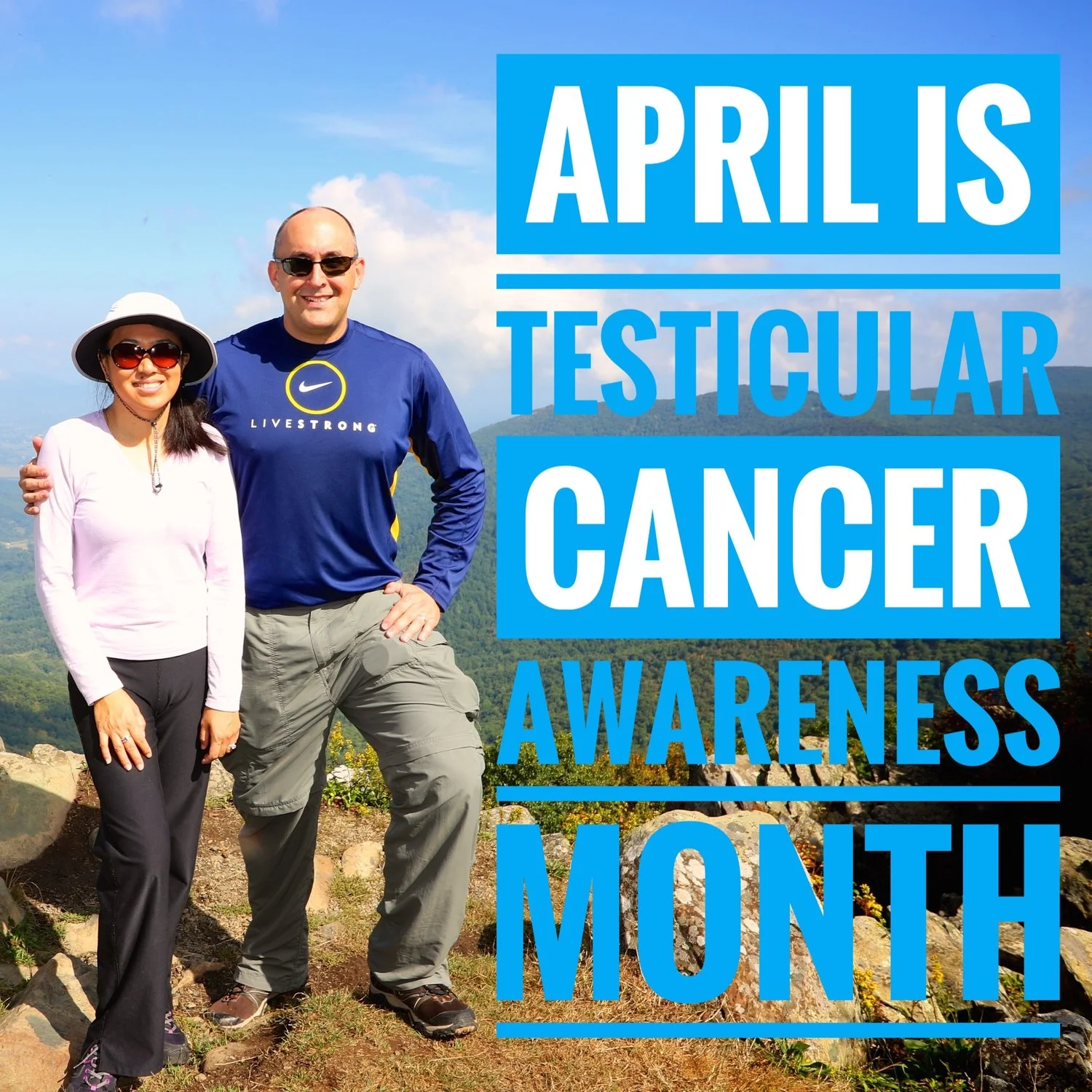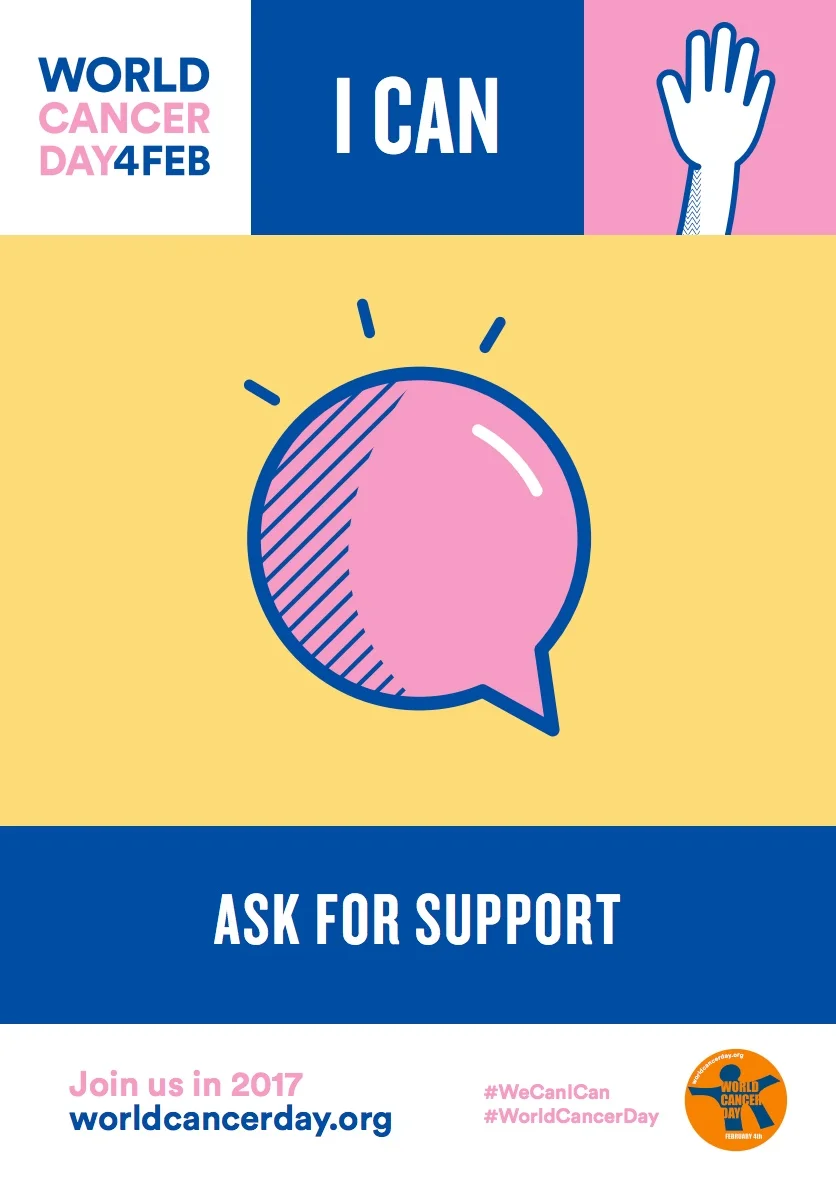Testicular Cancer Awareness Month Articles by Steve Pake

Life has not afforded me too much time over the past year or so to dedicate to advocacy work, but for Testicular Cancer Awareness Month in April, I always try to get this curated collection of articles out there into the community and the public to help raise awareness about not just the disease itself, but what we as testicular and young adult cancer survivors go through in the aftermath.
My cancer fight was in 2011, but it wasn't until 2014 that I started writing publicly about the disease and engaged in advocacy work, and the reason was because I was completely caught off guard about how difficult and challenging life after cancer was. I took to writing as a form of therapy for myself, and made the decision to share all of this publicly in order to help others. I'm happy to say that all of these blogs and more have made a huge difference for others, and that through cross-publishing they have been seen by hundreds of thousands if not millions across the world. I'm truly proud of all of this, and I hope it helps you as it's helped me.
There are two groups of articles below. The first group covers the core educational pieces that I've written about testicular cancer and some of the treatment options, and the importance of testicular self-exams, along with essential articles about cancer survivorship that are most appropriate to help educate the general public about testicular cancer. The second group of articles are core cancer survivorship articles, and are geared more towards those in the thick of this who might be struggling in the aftermath of cancer as I had been. These articles empower survivors to evolve themselves and to make the needed changes in your lives in order to power past the challenges that a history of cancer presents us with.
Core Testicular Cancer Education and Policy Articles
The Essentials: What those affected by testicular cancer, Care Providers, and the general public Should Know about testicular cancer
April is testicular cancer awareness month, and as a 9 year survivor of this disease, I can tell you a few things about testicular cancer.The first is that contrary to what people might expect, testicular cancer is actually the #1 form of cancer in men ages 15-44 internationally, yet almost no one talks about the disease. It’s sad and frustrating that 20 years after the founding of a very famous organization in yellow by a now very infamous testicular cancer survivor, that we still have to struggle so hard for any sort of public awareness about this disease. Testicular cancer in young men is about as common as breast cancer is in young women, yet no one ever talks about testicular cancer! In the U.S. alone, someone is diagnosed with testicular cancer every hour, and someone dies of this disease every day.
As I approach six years of cancer survivorship, never has it been more clear to me that cancer is not just a disease of our physical bodies, but a disease of our minds and souls as well. Thus, the argument that many make, is that cancer is not just a matter of eradicating the rogue cells from one's body, but of curing the entire patient.
The National Comprehensive Cancer Network (NCCN) Guidelines for are the bible by which Testicular Cancer patients are treated and managed. The follow-up care recommendations within these guidelines only goes out to 5 years, and even within those 5 years, there's been some significant adjustments to the recommendations over time. It's entirely possible that if you were diagnosed with testicular cancer within the past few years, that you might be able to make some adjustments to your follow-up schedules in favor of fewer scans or appointments, but what do you do after that? It's up to you and can go on a case-by-case basis. Here are some answers.
Every single testicular cancer survivor and their caregivers should be aware of the possibility of low or irregular testosterone levels after cancer, and that no, the other testicle might not necessarily ‘pick up the slack,’ as is commonly believed. It isn’t that simple. Every medical professional should also be aware of this possibility with testicular cancer survivors, especially if they’re symptomatic of hypogonadism.
By far, the biggest physical challenge I've faced after cancer, is that of chronic fatigue. After months of being poisoned almost to death by harsh chemotherapy drugs, irradiated trying to nuke cancer cells out of existence, or having our bodies ripped apart and then sewn back together, our bodies are just plain tired.
It seems like every few months, a story pops up somewhere where somebody managed to detect their testicular cancer with a pregnancy test. Yes, it's true! Thiscan be done. In a strange coincidence of nature, the hormone called beta human chorionic gonadotropin, or HCG for short, which is emitted from the cells that form the placenta when a woman is pregnant and is what the pregnancy test looks for, can also be emitted by some types of testicular cancer. Since HCG should never be elevated in men except for in a few rare and very specific situations, a positive pregnancy test result in a man is almost a sure sign of testicular cancer!
In February 2015, Steven Petrow published an article in the Washington Post titled "Guys, here’s why it’s not worth testing yourself for a ‘lump’ down there", coming out against testicular self-exams (TSE) after having previously been supportive of them. What's surprising about the article is not just that such a view against testicular self-exams exists, but because Mr. Petrow himself is a twenty years and change survivor of advanced stage testicular cancer. I applaud and congratulate Mr. Petrow on reaching such a milestone. It's something that we cancer survivors take great pride in and stories like his are inspiring to so many of us, but I could not disagree more with his recommendation against TSE. Petrow thinks that it's "smarter" now to keep his hands to himself, but is it really?
At the start of 2014, after suffering from a year of such terrible anxiety, depression, and post-traumatic stress, I finally had my life figured out again after cancer. I was in the midst of this moment of clarity where I had an intimate understanding of all that had gone wrong in my cancer survivorship and why, and all that had gone right as well. I couldn't afford to let this moment of clarity go to waste, because never again in my life did I want to suffer as I had throughout so much of 2013, hurting as I had been, yet not knowing what to do. After four months of writing, I finally released this essay into the world, and was happy to see it spread far and wide. If you only ever read one thing from me, let this be it.
CORE TESTICULAR and Young Adult Cancer SURVIVORSHIP ARTICLES
CURATED ARTICLES ON THE CHALLENGES OF life after cancer. This is what you or your loved one or patient are likely to be facing, even long after treatments have ended
One day I was reading my friend's website, and my jaw hit the floor when I read a post about grief. It was the first time I'd ever seen a "grief chart." I had no idea there even was such a thing, and I could easily identify myself at every single step of this big curve as a cancer survivor. I had been writing and sharing in my cancer journey for a few years at this point, and it had never occurred to me even once that this entire process and all that I was going through, was all really one massive grief curve.
I happen to be a good baseline for what post-cancer depression can feel like, because there had never been even a single depressive ‘bone’ in my body prior to cancer. I was always upbeat and optimistic about everything, believed that there were solutions to every problem, and did not have pre-existing issues with depression or anxiety. My cancer diagnosis at the age of 33 is the first time I faced any mental health issues in my life at all, and they hit me like a load of bricks.
Most people experience the various stages of life in a relatively linear and predictable fashion, but what happens with all of this when you're diagnosed with cancer as a young adult? Forget about an early midlife crisis. This entire linear progression of time and life stages are blown sky high, and you experience an "entire life crisis" all at once.
An essay looking back on six years of young adult cancer survivorship. If cancer were to take me now, if today were my last day, and if this were my last sunrise, how would I feel right now?
Experiencing fear on a regular basis comes with the territory of being a cancer survivor. It's a very normal and even healthy part of cancer survivorship, but something that needs to be managed, so here are six tips on how to help cope with and overcome it.
In Part 1 of these essays, I described what posttraumatic stress felt like to experience, and in Part II, I described the various things that I did to cope with and recover from it. In this final essay, I'm sharing the things that I've done to manage my life after suffering from posttrauamtic stress after cancer.
On at least two occasions when I've mentioned my cancer story to new friends or acquaintances that hadn't known, I've received comments that were just short of dismissive that testicular cancer is an "easy cancer", alluding to the high cure rate. I'll be honest in saying that I haven't been offended by such comments, because I know that short of having been there in some way themselves, it's simply impossible for people to truly know what a cancer diagnosis feels like, nor all that one entails.
25 Appointments and Counting... On the eve of my 4 year check-up for cancer, I rather foolishly clicked on a news video link of Virgin Atlantic Flight VS43's emergency landing in Gatwick last December. I've watched emergency landing videos before, but this is just asking for trouble around surveillance appointments, and I should have known better. As the Boeing 747-400 came down without its starboard main landing gear deployed, and with emergency vehicles lining the runway that were prepared for the worst, it was as though all of the collective fear, anxiety, and tension of the passengers on-board that aircraft found a way to channel straight through me. I could relate to this so well, because I know exactly what this feels like, and it's how I had already been feeling at the sub-conscious level. This is what I've been going through for 4 years now, over and over again, as an 'S.O.S.' cancer patient, "stranded on surveillance."
After our fights with cancer are over, we all want so badly to believe that everything is behind us and that life is going to get back to normal. Those first weeks and months after our cancer fights are such a precious time. It’s our first taste of freedom after having been wrongfully held hostage by cancer for so long. I had my life back, but as time and the months went on I realized that it wasn’t my old life that I had back, but rather an entirely new one. Cancer survivorship brings with it an entirely new set of life circumstances and a whole lot of firsts, many of which I was completely unprepared to handle or to deal with at all.
If there's one thing I've learned over the years as a cancer survivor, and just one thing I could say or one piece of advice I could give to cancer survivors everywhere who might be struggling in these challenging new lives as I had been, it's that the best way to survive cancer is to live the best possible life that you can.





















The retroperitoneal lymph node dissection surgery (RPLND) is a really gruesome and highly invasive surgery for some testicular cancer patients. It can be used as a primary form of treatment for some Stage I and Stage II patients that have been diagnosed with nonseminomatous germ cell tumors (NSGCT), and can also be used as a secondary form of treatment for the post-chemotherapy management of residual masses. The surgery is horrifying to many newly diagnosed testicular cancer patients and caregivers when they first read about it. Many will gravitate towards chemotherapy thinking that it’s “easier”, but I’m here to tell you not to be afraid of the RPLND surgery. It might actually be the better option for some.